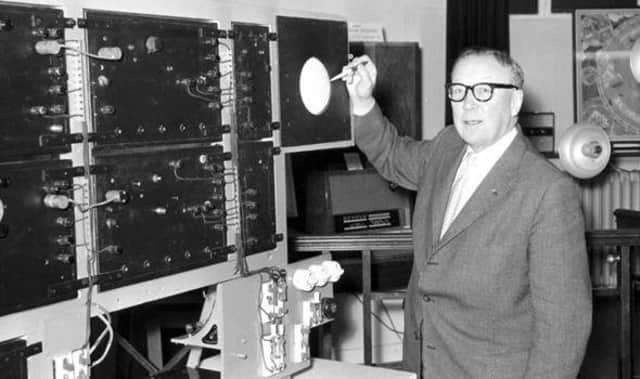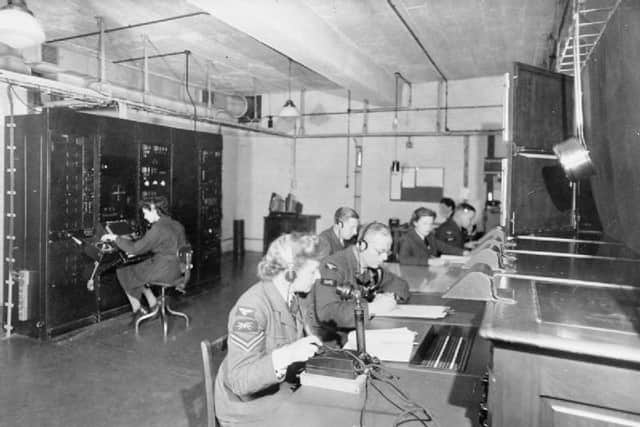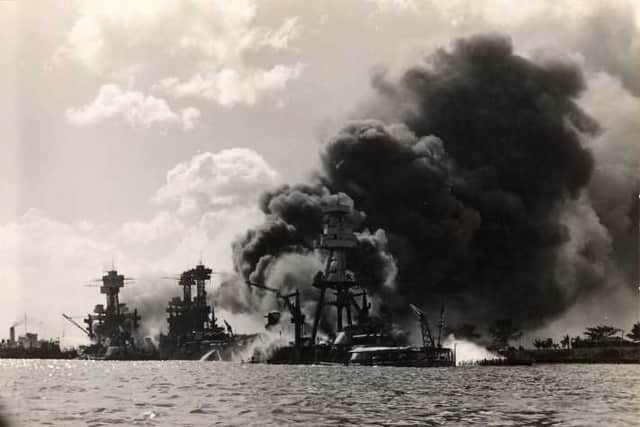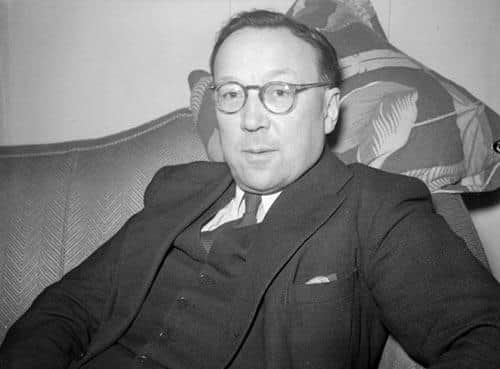Robert Watson-Watt: Scotland's top secret war hero


Compared to the true grit of pilots who flew during the Battle of Britain, accounts of Robert Watson-Watt barely appear as a blip on the radar in the history of aerial warfare.
There was no shortage of British heroism during World War 2: pilots, engineers and military tacticians all played a part in the decisive victory against Nazi Germany above the English Channel.
Advertisement
Hide AdAdvertisement
Hide AdTheir bravery and courage over the English channel is well honoured in the history books but the research of a Scottish scientist responsible for keeping German aircraft in check widely flies under the radar.


Robert Watson-Watt was born in Brechin, Angus on 13 April 1892. He attended a St Andrews University college in Dundee - now Dundee University since 1967 -before graduating with a BSc in engineering in 1912. Chair of Physics at the university offered him an assistantship and encouraged his protege to study radio.
During the First World War, he attempted to attain a job at the War Office, but nothing was available so instead he joined the MET Office and studied the use of radio waves to detect incoming thunderstorms.
Ian Brown is the Assistant Curator of Aviation at National Museums Scotland. He explains how Robert Watson-Watt was drawn into the military inner circle during the Second World War.
“The Prime Minister at the time, Stanley Baldwin, used a phrase ‘the bomber will always get through’ so the Air Ministry was looking at ways to try and provide defence against bombers.


Watson-Watt and his assistant pondered ways of utilising radar waves to detect incoming planes, as he had done with storms 20years previous.
Eventually, Watson-Watt’s radar system was implemented in a network of towers along the east coast of Britain.
Advertisement
Hide AdAdvertisement
Hide AdYou might think that an invention with such a profound impact on the outcome of the war would have made him a national hero, but his work remained shrouded in mystery.
“He’s not well known primarily because the work they were doing during the war was top secret. Eventually in 1941 there was some information released,” explains Ian, “but that was primarily because they needed more mechanics to work on the radar chain.”


The Germans too had radar, but they used it as a means of attacking stray ships.
“They had some radar stations in France, but they saw them as a means of finding British ships that they’d find sailing up and down the Channel that they could then go and attack.”
Pearl Harbour was destroyed
By the end of the war, radar development was being operated by most nations embroiled in the conflict. Famously, American soldiers manning the radar tower at Pearl Harbour


“When the Japanese attacked Pearl Harbour, the Americans had radar stations in Hawaii. They actually picked up Japanese aircraft coming in,” explains Ian.
“There was an operations room they were supposed to send the information to. They should have shut down 15 minutes before for breakfast. Some stayed a bit longer because they wanted to practice.”
Advertisement
Hide AdAdvertisement
Hide AdThe crew weren’t expecting incoming squadrons and phoned to Fort Shafter - where the operations room was - and raised their concerns, but they were told not to worry about it because they had also shut down for breakfast.
“Although they had a system, it wasn’t properly set up and as a result, the American fleet at Pearl Harbour was devastated.”
Robert Watson-Watt devised Radar to detect incoming bomb squadrons
After Pearl Harbour, American forces asked Watson-Watt to consult on their air defences for the Panama Canal.


The Scot was finally recognised for his efforts after the war.
His most significant contribution to the war was convincing the Air Ministry and Admiralty to implement an air defence system. He connected the radar towers to a system that observed and responded efficiently: a means of detection and a system for acting on intel.
Germans successfully targeted radar towers on one or two locations, but they ceased when they realised the futility of bombarding Allied communications. Mobile radar towers were concealed in trucks moving around the country to fill the gaps. Had they continued to bomb the radar towers, the outcome of the war would likely have been very different.
“At that time it was said that the atomic bomb had ended the war, but it was radar that had won it,” says Ian.
“It was the most important weapon of the entire war."